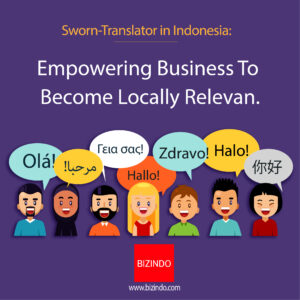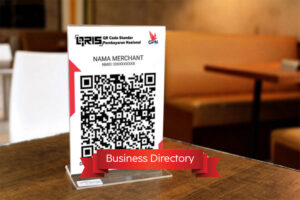The Rules of Permanent Establishment in Indonesia
In light of the development of cross-border business models involving foreign tax subjects, the Indonesia Ministry of Finance (MoF) has issued Regulation No. 35/PMK.03/2019 (PMK-35) since 1 April 2019. However, there are still many confusion and questions for this subject.
PMK-35 is in line with the existing PE concepts in the Indonesian Income Tax Law (ITL) and the relevant OECD and UN Commentaries. However, particularly with respect to the ITL provisions, it does provide more detail on some interpretive issues that were not included in previously existing regulations. It deals with the definition and determination of permanent establishments (PE), with the aim to provide more legal certainty for foreign taxpayers who carry out business or activities in Indonesia.
Registration and Revocation of Tax ID for PE in Indonesia
The Tax IDs (Nomor Pokok Wajib Pajak/NPWP) registration must be done within one month after the start of business activity and the revocation is done if the PE has ceased its business or activity in Indonesia.
The VAT entrepreneur status (Pengusaha Kena Pajak/PKP) registration must be done by the end of the next month after the minimum gross turnover threshold is exceeded and the revocation is done if the threshold is no longer met.
In overall, these are in line with the general rules that are applicable for other type of taxpayers.
Definition of Permanent Establishment
 PMK-35 defines a foreign individual as an individual who is not domiciled in Indonesia and is present in Indonesia for less than 183 days within a 12-month period. It defines a foreign corporation as one that is not established or domiciled in Indonesia. From here on, we refer to both foreign individuals and foreign corporations collectively as “foreign subjects”.
PMK-35 defines a foreign individual as an individual who is not domiciled in Indonesia and is present in Indonesia for less than 183 days within a 12-month period. It defines a foreign corporation as one that is not established or domiciled in Indonesia. From here on, we refer to both foreign individuals and foreign corporations collectively as “foreign subjects”.
A PE is first generally defined as a fixed place of business that is permanent in nature, through which the foreign subjects carry out business or conduct activities in Indonesia.
For PE requirement, the existence of the fixed place of business is determined without regard to whether the place is owned or rented by the foreign subjects, or whether the foreign subjects have legal rights to the place. However, the place of business should be available to be used in a way that gives the foreign subjects unlimited access to conduct business or perform activities.
The regulation however provide a specific carve out exception for cases where the place is only used for electronic data storage and/or electronic data management, where the foreign subjects have limited access to operate the place.
Place of business can cover any place, space, facility, or installation, including machinery and equipment, which is used by foreign subjects to conduct its business or activity, which can be in the form of:
- place of management
- branch
- representative office
- office building
- factory
- workshop
- warehouse
- room for promotion and selling
- mining and extraction of natural resources
- mining working area for oil or natural gas
- fishery, animal husbandry, agriculture, plantations, or forestry; and
- computers, electronic agent, or automated equipment owned, leased, or used by electronic transactions provider to conduct business via internet.
The regulation then goes on to describe cases where, even if there is not a fixed place of business in Indonesia, the foreign tax subjects may nonetheless be deemed to have a PE in Indonesia if they carry on business or activity in Indonesia through any of the following:
- Construction, installation, or assembly projects in Indonesia
- The furnishing of services in whatever form by employees or other personnel, as long as the services are conducted for more than 60 days within 12-month periods
- A person or entity acting as dependent agent
- Agent or employee of an insurance company which is not established or domiciled in Indonesia that collects premium or insures risks in Indonesia.
The definition of business or activity covers anything that is conducted to obtain, collect, or maintain income.
- Preparatory activities are defined as preliminary activities so as to ensure that essential and significant activities are ready to be carried out. Auxiliary activities are defined as additional activities that facilitate essential and significant activities. This exception does not apply if those activities are performed for another party.
- A business form that is used by foreign subjects to carry on only “preparatory or auxiliary” activity in Indonesia will not create a PE.
- Essential and significant activities are described as activities that are:
1) the main business or activity of the foreign subject;
2) an integral part of the main business or activity of the foreign subject;
3) directly generating income for the foreign subject; or
4) using a significant amount of assets or human resources.
- A construction project covers: Construction consultation services, Construction works, Integrated construction works, which covers design or engineering model,
procurement, and implementation works. - Construction, installation, or assembly projects may also include cases where projects are in Indonesia but work is performed outside Indonesia, or where work is subcontracted to domestic or foreign subcontractors.
- The regulation acknowledges that in cases where a tax treaty applies, the time test under the treaty will be applicable. Of note, in case a treaty gives a time test in months (as opposed to days), one day spent in a month will count as a full month.
Services PE is generally defined as the furnishing of services in whatever form by employees or other personnel for more than 60 days within a 12-month period. Under the
regulation, this can apply if:
- The employee or other personnel is employed by a foreign subject or is a subcontractor of a foreign subject;
- The furnishing of the service is performed in Indonesia; and
- The service is delivered to parties in or outside of Indonesia.
Generally, a person or an entity acting as a dependent agent constitutes a PE if the person or entity is acting for and on behalf of foreign subjects.
Such a person or entity is considered to be acting for and on behalf of foreign subjects if their business or activity is acting under instructions from the foreign subjects or does not bear their own risk from the business or activity. Under the operation of a tax treaty, the dependent agent is not considered a PE if they only carry out preparatory or auxiliary activities.
There is an exception where business or activity in Indonesia is conducted using an independent agent, broker, or intermediary as long as the agent, broker, or intermediary is acting in the ordinary course of their business.
An Insurance PE covers an agent or employee of an insurance company which is not established or domiciled in Indonesia will constitute a PE if they:
- collect a premium in Indonesia; or
- insure risks whereby the insured resides or is domiciled or located in Indonesia.
However, under a tax treaty, the above rule does not apply for a reinsurance
business.





 20% off today. Whatsapp us!
20% off today. Whatsapp us!